Article 50: What does its triggering mean?
- Published
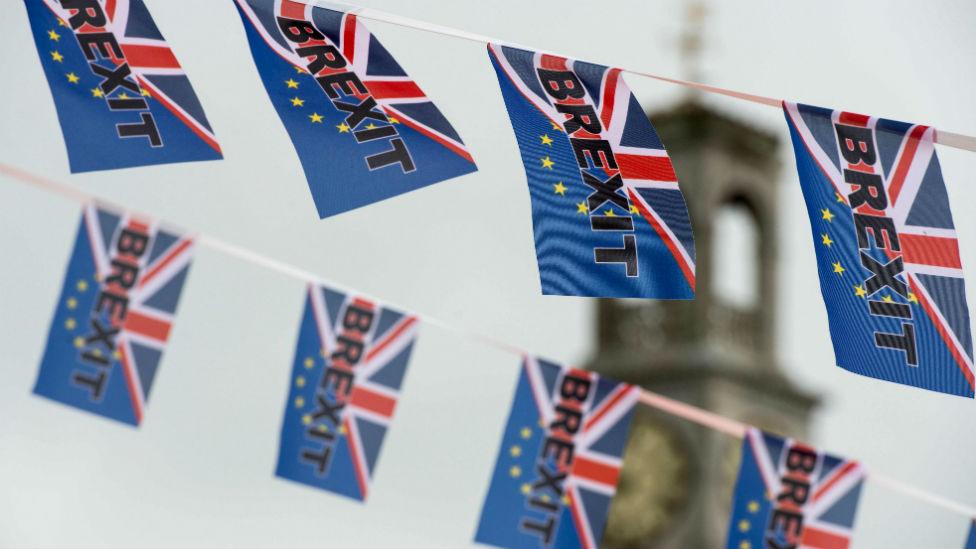
When Prime Minister Theresa May has triggered Article 50, negotiations for Britain leaving the EU can start
For Radio 4's PM programme, the BBC's Europe correspondent Kevin Connolly and assistant political editor Norman Smith are working with the BBC's Reality Check team to answer your questions about what triggering Article 50 means.

What happens once Article 50 has been triggered?
Kevin Connolly says:
Firstly, and most obviously, is that two years to the day of that triggering statement from Prime Minister Theresa May, the UK will formally cease to be a member of the EU.
However, Article 50 says the negotiations can be extended beyond the two-year period if all countries unanimously agree they want more time.
But it is in both sides' interests to have a speedy divorce within that two-year timeframe.
During this period there will be toing and froing between the European Commission in Brussels and the member states whilst they sort out negotiating positions.
Then the talks will commence.
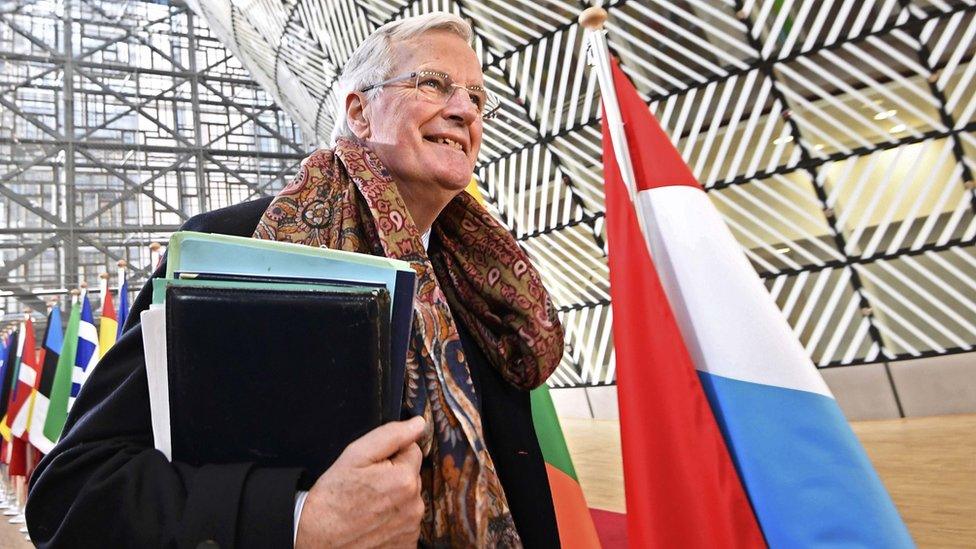
Michel Barnier is the EU's chief negotiator on Brexit
Expect to become very familiar with the name Michel Barnier, who is Europe's chief negotiator.
He is thought to want something roughed out by October 2018 so that it can be put to the European and UK Parliaments.
On the issue of a transitional deal, both Mrs May and David Davis, Secretary of State for Exiting the European Union, have said that there cannot be a transitional deal unless we know what the final deal would look like.
Mr Barnier has expressed a similar view.

When will we know what will happen to Britons living in the rest of the EU and EU citizens here?
Kevin Connolly says:
There is a chance that this may be sorted out in a relatively straightforward way.
The UK has said that securing the rights and the status of the 3.16m EU citizens, external who live in the UK will be one of its early priorities.
You hear something similar in Brussels about the 900,000, external UK passport holders who live in the EU.
It will ultimately depend on agreeing complex reciprocal deals on things like access to healthcare and pensions.
If other aspects of the talks prove more problematic, then those reciprocal residents' rights might get dragged down with them.
Either side or both might take the view that nothing is agreed until everything is agreed.
Expect this issue to come up early and for the early mood music to be positive.

What are Mrs May's red lines in the negotiations? What won't she budge on?
Norman Smith says:
Mrs May has been very determined not to reveal her negotiating hand ahead of the Brexit negotiations.
But we can see three clear red lines.
Firstly, immigration.
Mrs May has been very clear that she views the Brexit referendum, in part, as a vote on EU migration.
She wants to take back control and put back in place, a British-run immigration system, so that we are no longer part of a freedom of movement agreement.
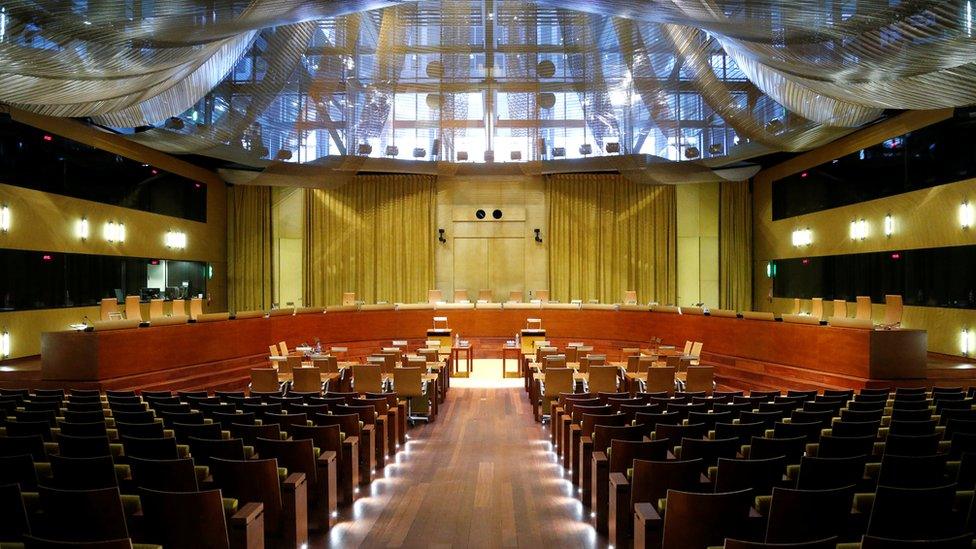
One red line is expected to be ending the jurisdiction of the European Court of Justice in the UK
Partly as a consequence of this first red line - having our own immigration policy - the second red line is that the UK will be leaving the EU's single market.
The EU has made it very clear that if the UK wants to stay in the single market, it will have to abide by the EU's four freedoms; free movement of goods, services, capital and people.
Red line number three is ending the jurisdiction of the European Court of Justice in the UK, ensuring that in future British law is supreme.
That means that the UK will have to find a new body to regulate and referee any future trade disputes between the UK and the EU.

Will the UK get a bill from the EU now that Article 50 has been triggered?
Kevin Connolly says:
The EU hasn't actually officially said how much money it will ask for from the UK but some calculations have gone as high as 60 billion euros (£51.7bn).
The EU argues that this bill will include the 26 billion euros (£22.4bn) for future plans agreed, where the money has not yet been spent and 7-8 billion euros (£6-7bn) for future pensions.
The UK could reasonably demand a cut of the assets, such as diplomatic properties, bank balances and even wine cellars.
There is legal advice indicating it is not obliged to pay the EU anything.
However, the UK says it will talk when it sees a detailed bill and given that the UK does want to do a deal, in that spirit the government will want to emphasise that it is a serious country, which pays its bills.
Expect a compromise somewhere between zero and that 60 billion figure, just not too near the zero.

Can we back out of Article 50 even after it's triggered and rejoin the EU much further down the line?
Norman Smith says:
No-one really knows whether Article 50 is irreversible.
That's because no-one has triggered it before and on top of that Article 50 is not really that clear on this issue.
There is a view in the UK government that once the process is started, it is irrevocable.
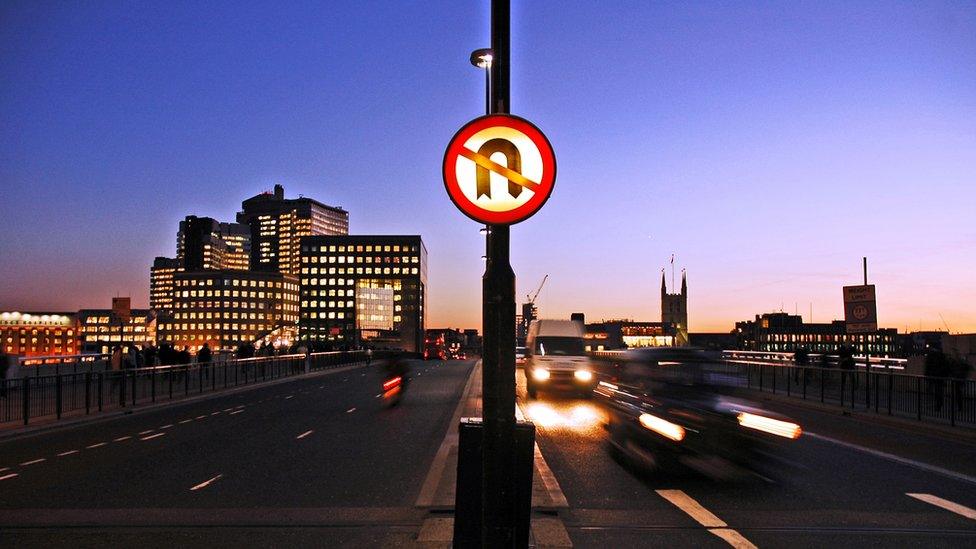
Is a U-turn on Article 50 possible? No-one is really sure
However, Lord Kerr, the man who helped to write Article 50, thinks differently.
He says that if the UK said it wanted to stay in the EU after all, although other EU countries would be terribly annoyed, they would probably go along with it - grateful to still have the UK as a member.
In other words, the politics would triumph over the legal niceties and the UK would be allowed to stay in the EU.
Listen to Kevin Connolly and Norman Smith answering Brexit questions on the BBC Radio 4 PM programme on Wednesday.

- Published15 February 2017
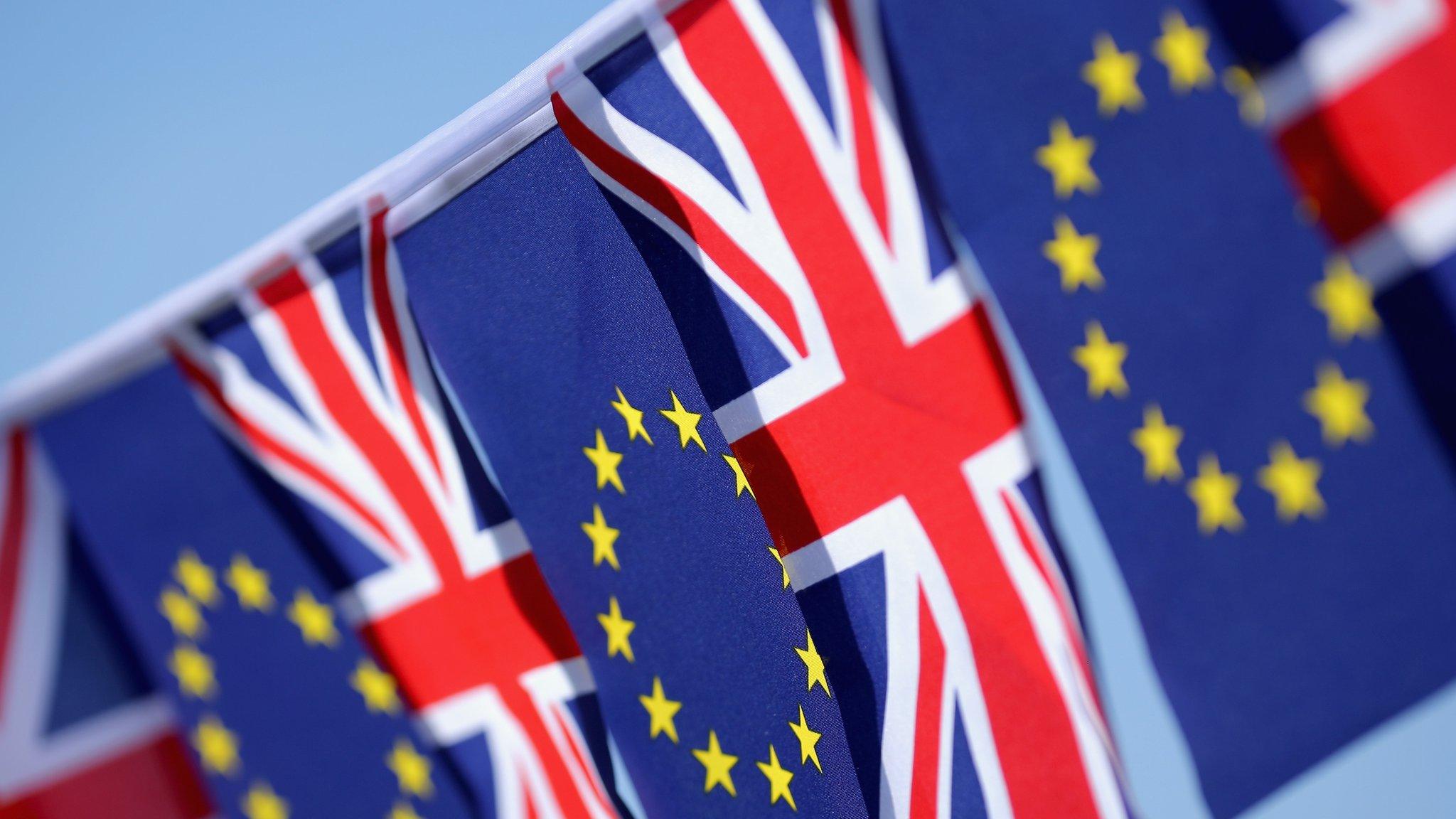
- Published4 November 2016

- Published30 December 2020
